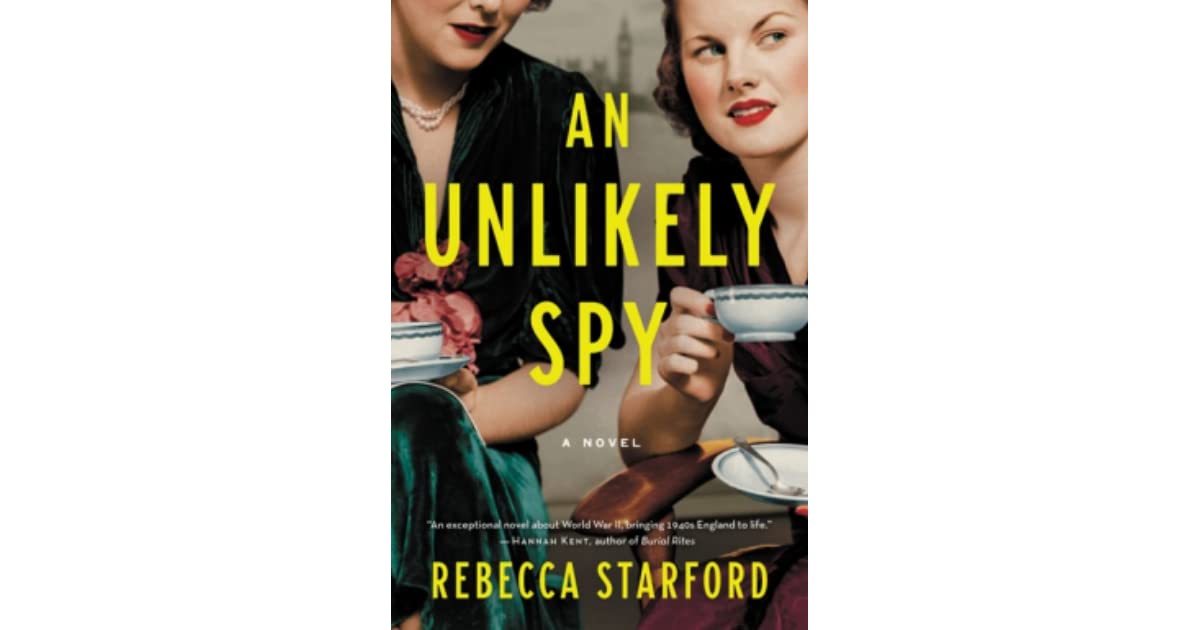An Unlikely Spy by Rebecca Starford follows the life of Evelyn Varley, an Oxford graduate risen far beyond her station in life to the ranks of undercover MI5 agent during WWII. Evelyn is bright, resourceful, and has always striven to reinvent herself to blend in, which makes her a good undercover agent. When tasked with outing a group of Nazi Sympathizers, she finds how easy it is to forget herself and play a part. However, when her loyalties are challenged and she has to make a choice between friendship and country, she discovers that even she might not know the real Evelyn at all. The story is told in two timelines: the year of 1938 and 1948, during which Evelyn’s complicated life is pieced together.
I found this book to be quite unsettling. The description says it’s dark but, even so, I wasn’t prepared for how despairing it might actually be. Evelyn’s life as a spy isn’t easy, even without the development of her work life crossing with her personal life. She becomes involved with a group of Nazi sympathizers, gains their trust, and has to see them as the people they are, with all of their vulnerabilities exposed. Her hatred for their attitudes competes with her understanding of them as people, and breaking anyone’s trust is never easy.
Evelyn’s emotional struggle with the Nazi sympathizers resonated with me more than her conflicted attitudes with her friendships and her job. Her intentions concerning her friends were good, but her decision-making in that area didn’t make very much sense to me. Then again, Evelyn herself didn’t make a lot of sense to me.
I had a struggle myself reading this book because I found that I didn’t like Evelyn very much as the story went on. The beginning starts with her at school, and how she wanted to fit in so badly but never could because she was from a poor family. She changed her image to be like the popular girls, and abandoned her best friend in the street when they invited her to join them. Evelyn is also estranged from her parents, and turned her back on them when they didn’t suit the image that she wanted to present to people. I found this deceit and using of people distasteful, even though I don’t think it was all ill-intentioned; I just don’t think that Evelyn really knew who she was or what she wanted out of life.
I think that Evelyn felt like a girl with no identity for her childhood, and carried that feeling into adulthood and, ultimately, her job as a spy. She was a smart girl, sharper than her parents, and didn’t quite fit in at home, school, or her community. Her lack of self-identity gave her the toolkit to be who she wanted to different people, including her friends and family. It was also her greatest asset as a spy, until she had to make tough decisions and face who she really might be.
While I wouldn’t read this book again – it is dark – it certainly put a face on espionage other than James Bond and Ethan Hunt. This was real work, real effort that people put in during WWII because they wanted to keep their country and its citizens safe. It’s not all car chases, dramatic explosions, and code-breaking. It’s real people making sacrifices and betraying other real people to stop a threat. Evelyn and spies like her were little drops in the big pond of war, and few of their ripple effects were ever known to the public. It certainly put strain on Evelyn and her relationships with all of the people that she loved. I cannot imagine living a secret life, let alone one where I have to turn in someone’s son or daughter to the government for treason.
If you’re looking for an uplifting read, I wouldn’t recommend this book. However, I would recommend it if you’re looking for a different perspective on espionage during WWII. I really think that you’ll see some things differently, be uncomfortable at times, and see your discomfort as a credit to Starford for her well-researched, well-written, and thought-provoking read.
